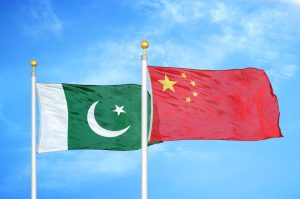The recent visit of the commander of the People’s Liberation Army Ground Forces, General Li Qiaoming, to Pakistan, underscores the strategic importance of their defense partnership, particularly as Pakistan grapples with an uptick in militant attacks along its borders.
High-level military talks during Li’s visit focused on critical regional security concerns, including the volatile situation along the Line of Control (LoC) with India, China-India border tensions, and the evolving dynamics in Kashmir and Afghanistan.
The timing of this visit is significant, as Pakistan seeks to bolster its defense ties with China amidst a rapidly shifting geopolitical landscape.
Pakistan faces security challenges from Afghanistan, where the Tehreek-e-Taliban Pakistan (TTP) operates under the protection of the Afghan Taliban regime. Pakistan’s efforts to find a diplomatic solution to the TTP problem have proven challenging as the country struggles to garner the support of nations like China to put pressure on Kabul to change its policy toward the militant outfit.
Moreover, Pakistan’s Balochistan province, where China has significant investments, has seen a sudden increase in insurgent attacks, including during Li’s visit. The fresh wave of attacks, which left at least 50 people dead in the province, has renewed concerns about Pakistan’s ability to ensure security and provide a safe environment for Chinese investments and nationals.
While the latest attacks by Baloch militants may have been timed for local propaganda purposes, their coordination and scale suggest a well-planned operation. The incident and the overall increase in insurgent activities in Khyber Pakhtunkhwa and Balochistan do not reflect well internationally on Pakistan’s ongoing efforts to combat militancy.
In this regard, the visit of China’s army commander to Pakistan during this challenging security environment holds significance.
The visit, among other things, demonstrates China’s unwavering support for its strategic partner and underscores the importance of their defense cooperation in addressing regional security concerns.
Moreover, the visit of the Chinese army commander to Pakistan at a time when militancy seems to be on the rise sends a message to extremist groups that Beijing’s ties with Pakistan will outlast the militancy and are strategic and enduring in nature.
Following the recent attacks in Balochistan amid Li’s visit to Pakistan, China came out in support of the country, strongly condemning the latest militant forays in the province and pledging support to Pakistan in countering terrorism.
It is pertinent to note that while Pakistan may have been under increased pressure from militants in recent months, the country has done well to take the fight to the extremists. The ongoing accelerated counterterrorism operations across Khyber Pakhtunkhwa and Balochistan have led to the killing of hundreds of TTP and Baloch militants across the country in recent weeks.
A security official told The Diplomat on condition of anonymity that everyone, including Pakistan’s allies, should understand that the militancy in Pakistan is a long-term challenge that the country will have to fight and overcome.
While that may be the case, the challenge for Pakistan is to convince the Chinese leadership that it can benefit from Beijing’s increased support with arms transfers to prepare a more effective response to contain militancy. Moreover, Pakistan could also benefit from increased Chinese diplomatic support to put pressure on leadership in Afghanistan and even Iran to deny space for militants that operate on Pakistan’s soil and are a threat to Chinese interests as well. This could prove constructive for Pakistan’s efforts to deal with the TTP as well as Baloch militants, given China’s considerable influence with both Tehran and Kabul.
It is important to note that while Pakistan’s overall ties with China may at times face some irritants, both countries’ military-to-military ties have deepened significantly over the past decade. Their armies and navies are increasingly sharing equipment, engaging in more sophisticated joint exercises, and exchanging staff and officers. As arms supply chains and communications networks between Pakistan and China are more compatible, the countries might be able to further deepen their defense capabilities.
In this context, Pakistan should use its growing military-to-military ties with China to win more support for its counterterrorism initiatives and capacity building.
It is unclear how strongly Pakistan’s military and civilian leadership broached the topic of enhancing counterterrorism capabilities and whether they asked for increased cooperation between the two armies to achieve common security objectives during the meeting with Li. Furthermore, it is unclear whether Pakistan’s political and economic ties with China will benefit from the Chinese army commander’s visit.
However, it can be argued that Pakistan’s efforts to transform its military-to-military cooperation with China will also depend on clearing up Beijing’s political concerns regarding persisting political instability in Pakistan and financial challenges like debt related to the China-Pakistan Economic Corridor (CPEC).
As Pakistan navigates these complex challenges, the strengthening of its military ties with China could prove crucial in bolstering its security and regional influence.

































